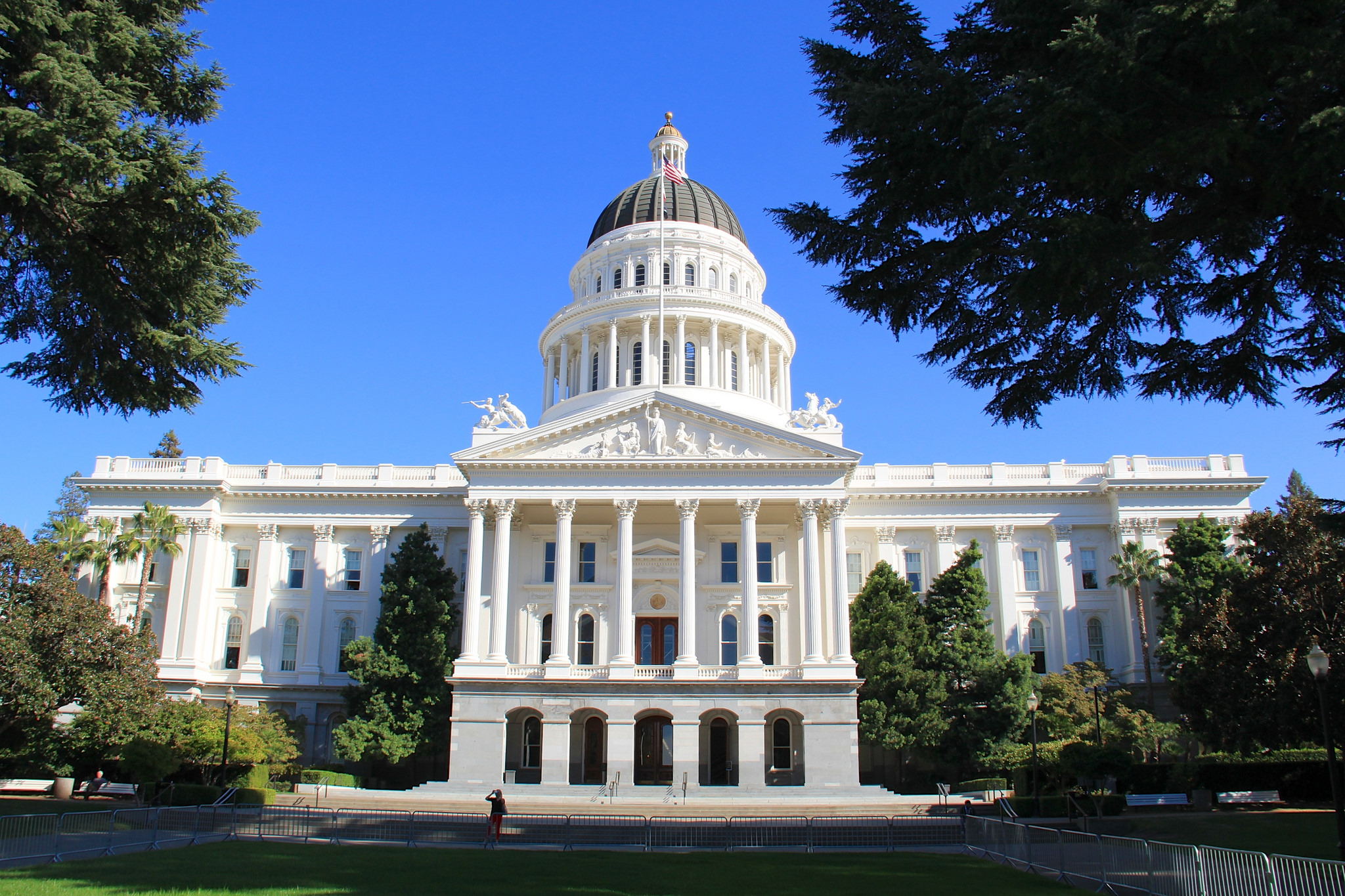Help us protect the commons. Make a tax deductible gift to fund our work. Donate today!
If you’re a California resident, act now! Send a message to your state representatives telling them to uphold free, open access to California government works.
 Front of California State Capitol, by David Fulmer, CC BY 2.0
Front of California State Capitol, by David Fulmer, CC BY 2.0
Unencumbered access to public sector information is central to a well-functioning democratic system. And if our government entities believe that transparency, collaboration, and public participation are civic goals worth supporting, then the public should be able to enjoy free and open access to taxpayer-funded government resources.
In February, California introduced a bill that would permit state and local government agencies “to own, license, and, if it deems it appropriate, formally register intellectual property it creates or otherwise acquires.” The law would control access to public sector information developed in California. The bill, called AB 2880, is currently moving through the state assembly. Its origin rests partly in a trademark dispute between the U.S. federal government and a third-party contractor at Yosemite National Park. AB 2880 was introduced to clarify the intellectual property rights held by the state of California.
Most of the intellectual property developed as a result of public funding in the state of California is in the public domain due to the state’s progressive copyright policy. This means that anyone may share and re-use the work of government agencies without having to ask permission or worry about infringing anyone’s copyright.
In its policy analysis of the proposed law, the state attempts to dismiss criticism by pointing out that AB 2880 wouldn’t interfere with individuals accessing information through a California Public Records Act request. While freedom of information requests are an important mechanism to ensure the public’s right to access government records, it’s not a viable or efficient technique for sharing a vast majority of the information the public should have access to by default. And, according to EFF, asking citizens to rely on records requests for access to publicly sector information is not a solution because California would still be able to regulate downstream uses of those materials:
“by explicitly reserving all of the exclusive rights given to a copyright holder, the state and local governments keeps extraordinary powers to restrain the ability for a citizen to distribute documents they obtain through a CPRA request.”
With changes in law and funding requirements, public sector bodies are switching the default from closed to open. Efforts such as Project Open Data, the agency-wide U.S. Department of Labor open licensing policy, the EU’s Horizon 2020 research program, and national level open licensing frameworks for public sector information in Australia and New Zealand are only a few examples.
In its own summary of the bill, the state specifically acknowledged the concern that “allowing state ownership of intellectual property might restrict the dissemination of information.” California should remove this bill from the legislative docket, or amend it in such a way that guarantees that the public is granted free and open access to government funded works.
If you’re a California resident, act now! Send a message to your state representatives telling them to uphold free, open access to California government works.
Posted 19 May 2016